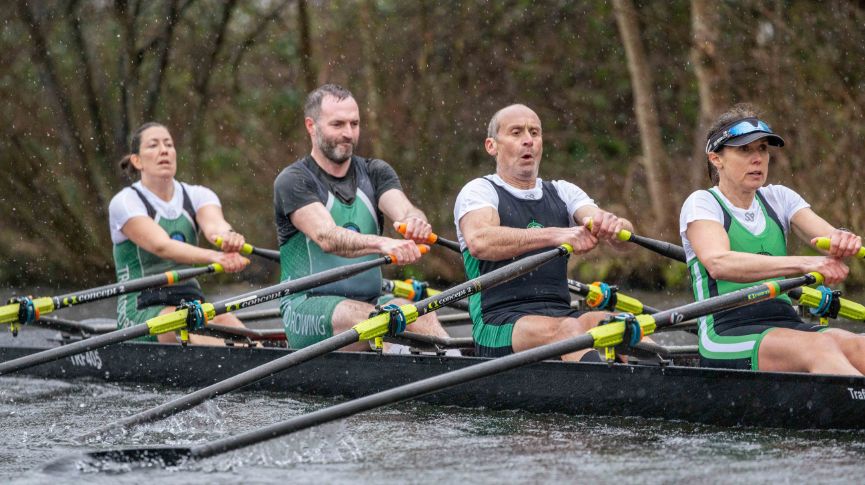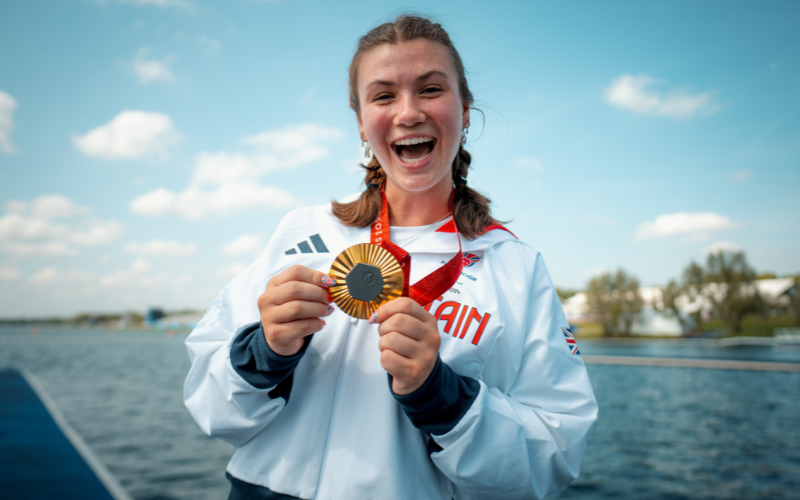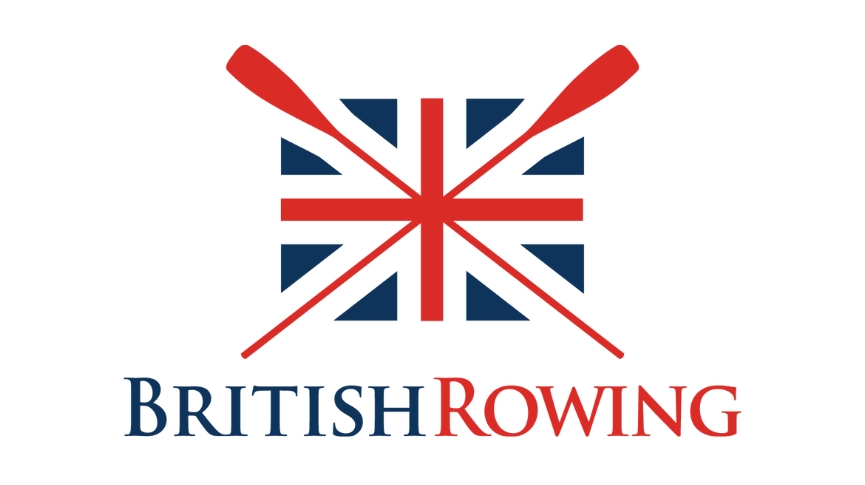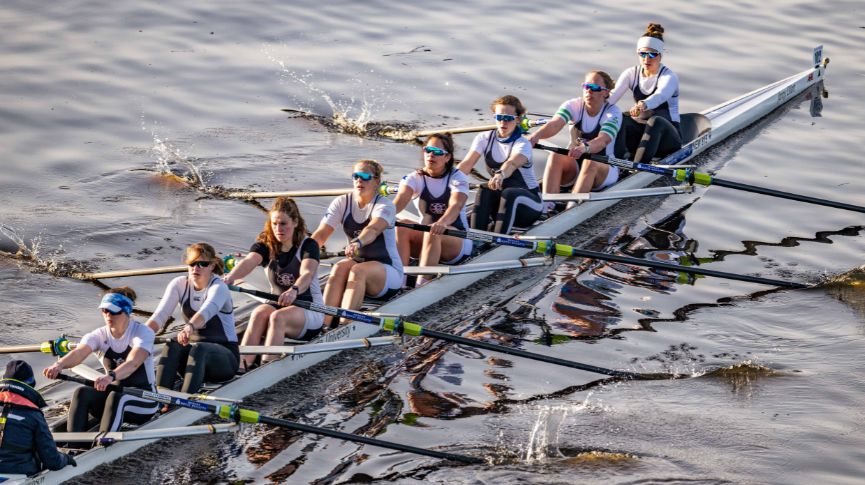How to tackle GB Trials: Insights from the Olympic Head Coaches
Fergus Mainland hears from Olympic Head Coaches Andrew Randall and Paul Stannard about how to approach trials if you are an U19, U23, or senior athlete
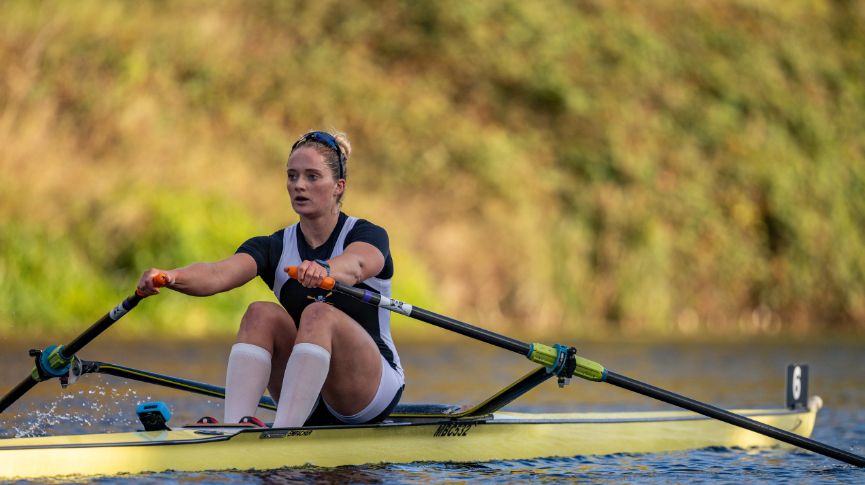
Credit: AllMarkOne
We’re at that point of the season where hundreds of athletes have already made their pilgrimage to Boston RC. For years the club in Lincolnshire has welcomed scullers and sweepers from across the country to lay down their best performance at Trials. At the same time, they set an early-season marker for coaches selecting teams for international duties at the business end of the season.
For U23s and seniors, the first weekend in November had been circled long in advance. A 2000m ergo test at the Princess Royal Sports Arena was followed by a 5000m water assessment on the infamous Boston race track. While the first round of junior trialling has switched to autumn benchmarking events at regional races, the consistent metric across the age categories is diligent preparation and building well over the coming weeks and months.
At this first opportunity for athletes to put their hand in the air and impress selectors, Men’s Olympic Head Coach Paul Stannard was clear in what he was expecting.
“I wanted to see a very strong erg result on the Saturday,” he explained.
“The published erg cutoffs are purely that – the minimum standard required to participate. Successful candidates will be significantly under 6:00 for U23 and Senior athletes. We then want to see this backed up on the water. In the last two years, we’ve required male athletes who receive any form of funding to scull. If you’re a sweeper who’s sculling, give it your best, don’t make an excuse or treat it with less focus than if you were in a pair. In a pair, be competitive with the top scullers.”
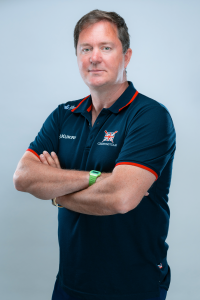 GB Rowing Team athletes who raced at the World Championships in Shanghai this year were exempt from this round of trialling. For Women’s Olympic Head Coach Andrew Randall, this part of the season is significant ahead of December Trials, as it’s about aligning athletes training at clubs with those who are at the National Training Centre in Caversham on a daily basis.
GB Rowing Team athletes who raced at the World Championships in Shanghai this year were exempt from this round of trialling. For Women’s Olympic Head Coach Andrew Randall, this part of the season is significant ahead of December Trials, as it’s about aligning athletes training at clubs with those who are at the National Training Centre in Caversham on a daily basis.
“We try to make trialling very standard on the women’s side,” summarised Andrew.
“I’ll be sending the programme out to all the coaches who are coaching the invitees. This is because it’s important to have a level playing field so that people do the same work running in. We have a couple of activities going on that we want all the invitees to go to. The first of those is a 5000m ergometer test rate capped at 26, followed by a 2000m trial regatta, where we’ll do a time trial and race.
“The following weekend is the British Rowing Indoor Championships, and we want to use BRIC as their 2000m selection for the ergometer performance alongside the Men’s Squad, and then we will follow that two weeks later with trials. If we can get all the invitees doing the same kind of thing, then we can compare apples with apples come Trials time.
“Otherwise, it can get very difficult because I’ll be working Caversham athletes quite hard and not doing any race work, but the clubs could be doing a lot less volume and a lot more race work, so you can’t really compare apples and oranges.”
For both juniors trialling for the first time or seasoned veterans returning for another international campaign, the coming weeks are of the utmost importance. With cold, damp weather setting in and flu season right around the corner, looking after your body has never been more critical.
Just this weekend, juniors have been racing at the likes of Inverness Head and Boston Junior Sculling Head, and rest and recuperation is just as important for them as it is for older athletes doing two days of trialling a couple of weeks ago.
“If done properly, it should be a tough weekend with a maximal 2000m erg and maximum 5000m water performance on back-to-back days,” explained Paul.
Back in 2009, Stannard was looking after the GB Performance Development Academy in Bath, and similar philosophies applied 16 years ago as they still do today. Olympic Champions Helen Glover and Heather Stanning were training hard alongside Olympic silver medallist Vicky Thornley, and as part of their prep for Boston trials they had a weekend where they raced to their limit with a 2000m ergo on the Friday, headed straight to Wallingford Head for both divisions of racing on the Saturday and then did the Marlow Rowathlon on the Sunday.
Recovering off the back of the trials weekend should have as much thought as for the trial itself. “For younger athletes or athletes with further travel, it might be appropriate to have Monday off. For more experienced athletes, it’s more likely to be appropriate to continue training but maybe do a session or two less in the first two-three days. Focus on rest, nutrition and core or stretching around your main training sessions to recover well and prep for the next block of training. This is very individual however based on distance travelled, training age, school/uni/work requirements, etc.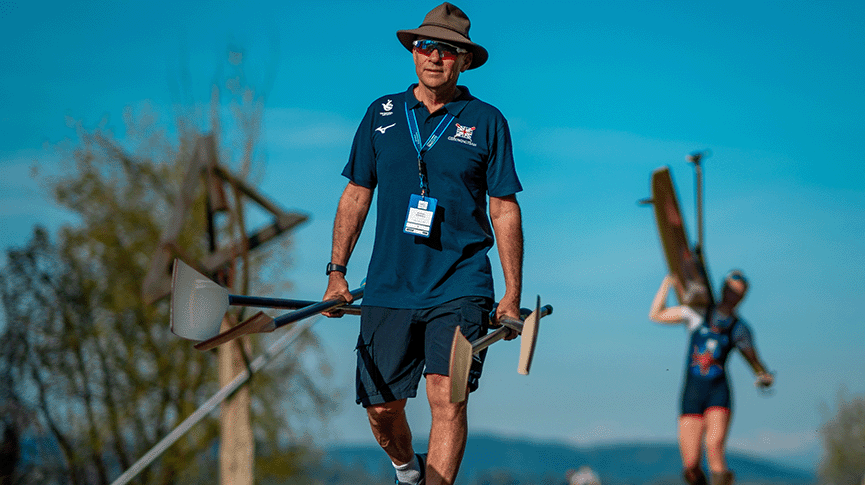
Preparing well and giving your best on the day is key in Andrew’s view. As Andrew explains, “It’s a matter of them getting the best out of themselves; that’s what we call high performance, performing on the day you need to perform. You can’t do it on another day. We know when the World Championships are or when the Olympics are, and we know what day we need to perform.
“That’s why Sir Steve Redgrave was outstanding and a real role model. For five Olympics in a row he was right on that day and won five Olympic gold medals which is pretty hard to do. He managed to get himself right on those five occasions every time. It’s hard to do and very impressive. That’s the mentality we’re trying to build into our athletes.”
Both Paul and Andrew stress the importance of getting as much information out of those who have already walked the path of Trials. Learning from past experiences allows athletes to come in with an idea of what to expect, making sure they are well informed and aware of everything that could occur. Preparation for every marker in the calendar begins long before ‘Attention, Go’ is called at each of the start lines.
“Be careful whose advice you ask for, but then listen to the advice.
“It’s a long weekend and there’s lots of simple things that you can do to maximize your performance before you even step foot on an ergo or in a boat – plan the logistics – accommodation, transport, etc so there’s no last minute surprises. Plan your nutrition – hire accommodation with a kitchen or book a decent restaurant before the weekend. Most importantly, READ THE INFORMATION PROVIDED by the GB Rowing Team. 99% of everything you need to know should be in there,” emphasised Paul.
All information about trialling for the Great Britain Rowing Team can be found here.
You can join the GB Rowing Team at the British Rowing Indoor Championships in Birmingham 6-7 December.



